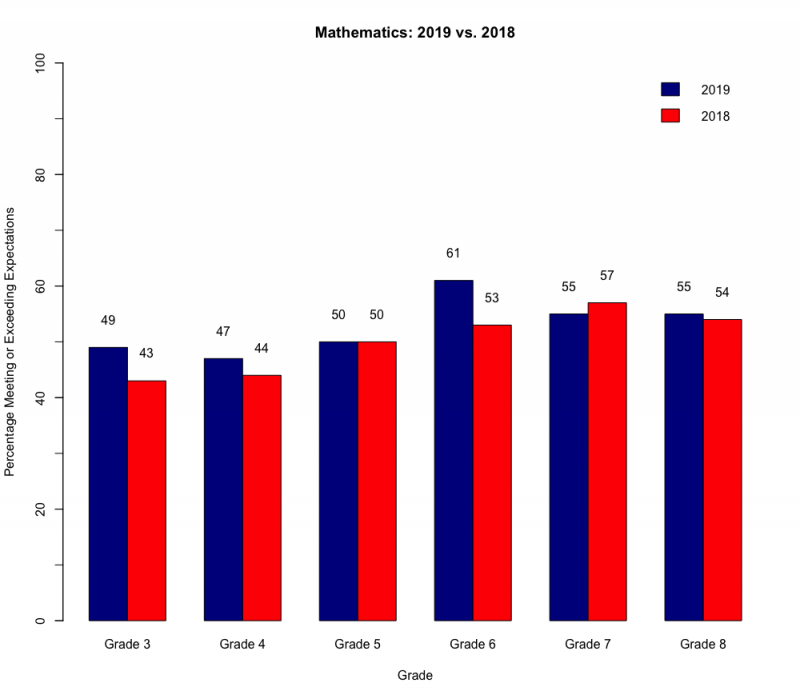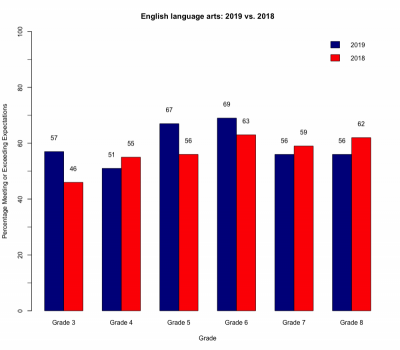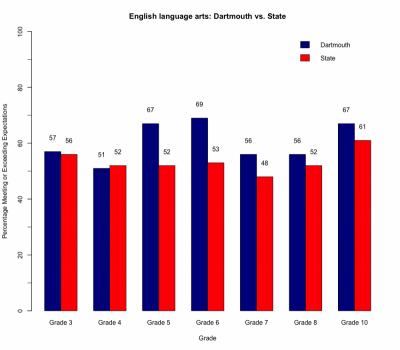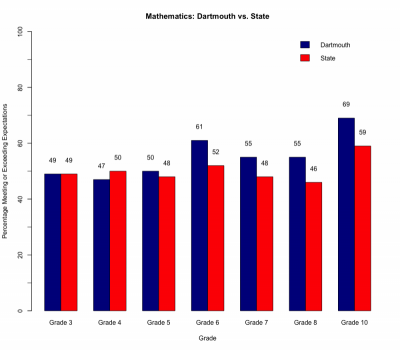MCAS results show growth and improvement at most grade levels
MCAS test results are in, and Dartmouth school officials are pleased with how students performed on the ever-changing state assessment system.
On September 24, the state Department of Elementary and Secondary Education released results for the 2019 school year MCAS testing.
Over the past few years, the testing system has undergone significant change. This year is no exception.
Tenth grade students took the "next-generation" MCAS mathematics and English language arts tests for the first time. It had been implemented across grades three through eight over the past few years. Students in grades five and eight took the "next-generation" science and technology/engineering test.
And results are good news for Dartmouth schools.
“We’ve seen a lot of growth in spite of all of these changes with the work that Tracy [Oliveira] has done with curriculum alignment, and really really having teacher teams understand what the standards are that they should be focusing on,” Superintendent Bonny Gifford said.
The next generation test includes four grading categories: Exceeding expectations, meeting expectations, partially meeting expectations, and not meeting expectations.
In the mathematics test, Dartmouth students in all testing grade levels either beat or hovered close to the state average of students in the top two grading categories of meeting or exceeding expectations.
Dartmouth High School tenth graders saw the largest jump ahead of the state average, at 69 percent over the 59 percent state average. Sixth graders were also well ahead of their peers statewide, at 61 percent versus 52 percent.
The results are an improvement from last year at all grade levels except the seventh grade, which fell two percentage points to 55 percent.
Gifford and Assistant Superintendent Michelle Roy noted growth in particular at the high school level was the strongest it has been in four or five years. The high school has implemented a full-year algebra program, and at both the high and middle school levels, there has been a focus on project-based learning.
School officials plan to bring those improvements to the elementary school levels. Specifically, new mathematics support programs like STMath, and focusing on the elementary-to-middle-school transition.
“We’re going to be working on the earlier grade levels,” Roy said. “We’re close to the state, and we’d like to have a bigger gap.”
In the English language arts test, most grade levels finished far above their peers statewide. Dartmouth third and fourth graders matched the average of the number of students scoring in the top two categories, while remaining grade levels were between five and 15 points ahead of the state.
Compared to last year, however, the results are mixed. Results were up in the third, fifth, and sixth grades, but down in the fourth, seventh, and eighth grade by between three and seven percentage points.
Last year's English results were also up significantly, owing to a new reading and writing workshop model and work to improve the curriculum.
Growth was also in line with goals set by the state in all grade levels on both tests.
In the tenth grade science and technology/engineering test, 85 percent of students met or exceeded expectations compared to 74 percent statewide. That score has been in the mid-80s since 2016.
“We’ve been pretty strong overall, around 85 percent of our students are meeting that,” Roy said.
In other grade levels, 54 percent of fifth graders and 47 percent of eighth graders scored in the top two categories.
The release of the MCAS test results also includes school accountability data. The formula uses varying percentages of growth, achievement, and other data to calculate how schools are improving.
Potter and Quinn Elementary are rated in the highest category of “Meeting or Exceeding Targets.” Other schools are in the second highest category of “Substantial Progress towards targets.” The district as a whole is also in the second category.

















